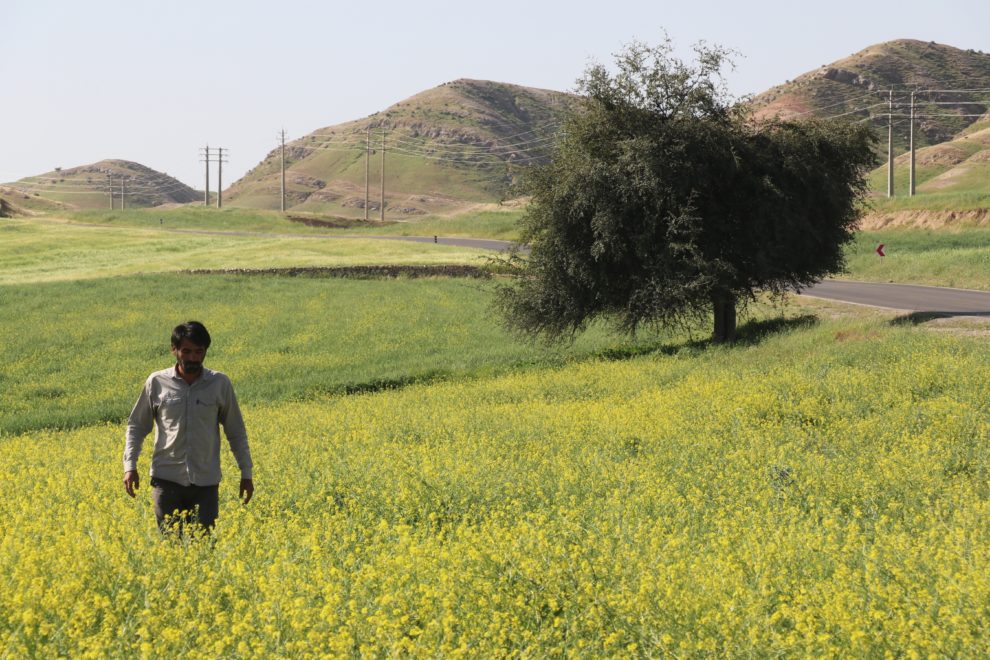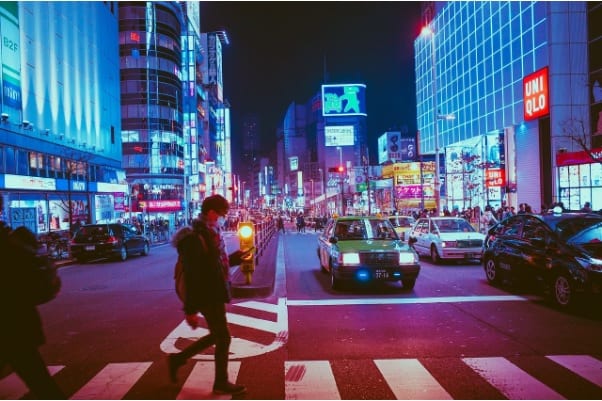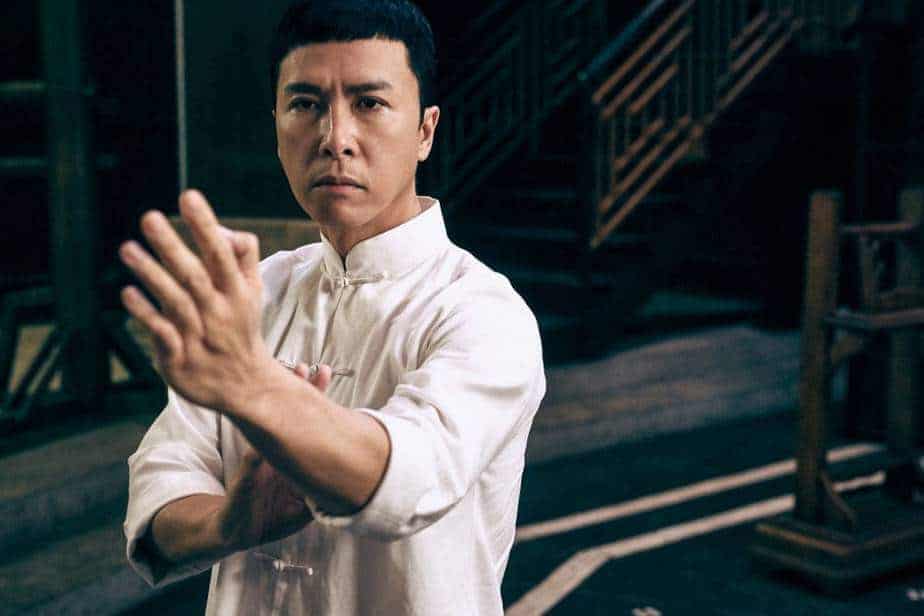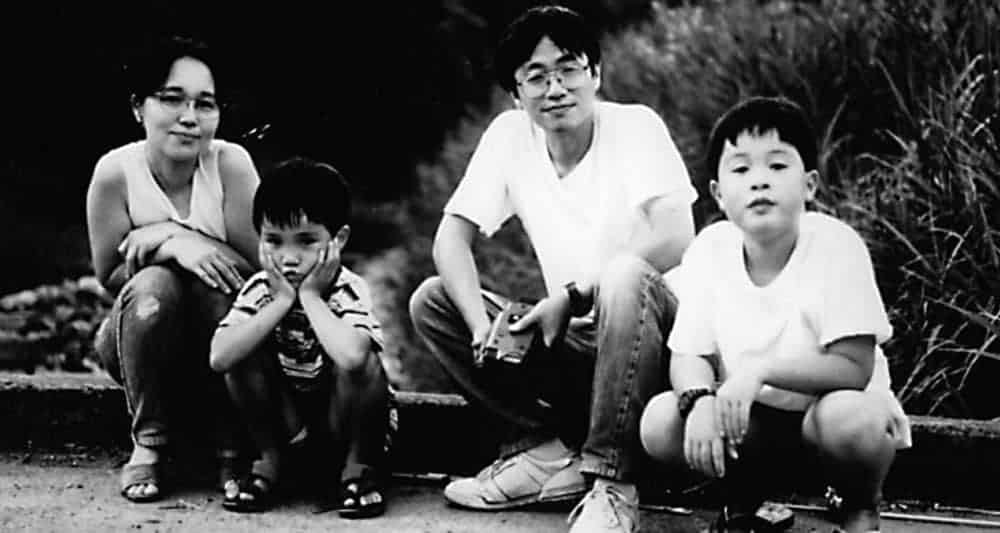The 27th edition of the Busan International Film Festival startet on 5th of October and will show a new selection of the best from the Asian cinema till 15th of October. One thing is sure from the beginning, it will be a good year for cinema from Iran here as well. Some other international festivals have already come forward, like the Berlinale with “Ta Farda” by Ali Asgari, “Leila's Brothers” by Saeed Roustaee and “Holy Spider” by Ali Abbasi in Cannes, “No Bears” by Jafar Panahi and “Beyond the Wall” by Vahid Jalilvand in Venice. These films can now also be seen in Busan, as well as “Life & Life” by Ali Qavitan and “Scent of Wind” by Hadi Mohaghegh who opened the festival.
“Scent of Wind” by Hadi Mohaghegh – Dignity in Modesty
The director's fourth feature film tells a very simple story in itself, but the images of the hilly Iranian hinterland and the characters that gradually present themselves grab you in no time. At the beginning, you see a man climbing around on a steep rocky slope, harvesting something. Then he reaches his house, a modest hut, where his son, who is completely paralyzed, lies. The man is also physically impaired, he cannot stretch his legs, which is why he can only move slowly with the help of his arms.
The view of these routine, but laborious-looking hand movements is hardly bearable in the beginning. Isn't this poverty and misery voyeurism? But the film does not expose its protagonists, rather they gain dignity through it. In all the visible harshness there is also something loving, in a haunting way “Scent of Wind” mixes a feeling of sadness with one of joy, awe and emotional warmth. There is no melodramatic twist at the end, instead the screenplay repeatedly contains heartfelt, touching and slightly ironic scenes.
The man and his son live very isolated lives. One morning, the power goes out. He goes to several neighbors to use their cell phones to call the power company. First he meets an old couple, they have no phone to lend him, but they ask him to thread a sewing needle for them because their eyesight is too poor. Later, the engineer comes to the man's house. If he let the repair go the official way, it would take several weeks, but he is moved by the man and decides to take action himself. To do this, he travels around the area in search of spare parts and meets other people who obviously do not lead an easy life. But they know no self-pity and surprise you with a very unusual will to live. This is evident, for example, in the character of the blind man who seizes the opportunity when the engineer mistakenly goes to him to ask him to take him for a ride in the car because he has an appointment with a woman.
Inevitably, one is reminded of Abbas Kiarostami's “Where is my friend's house” , in which a boy undertakes an odyssey to return a notebook to his schoolmate. Here the protagonist is older, just as persistent and responsible. “Scent of Wind” is also a parable for patience and helpfulness.
“The Policeman's Lineage” by Lee Kyoo-man – In the Gray Zone
The police are a popular subject in Korean films. They are either too doltish and can be easily bamboozled by the criminals, or they are part of a larger circle of corruption in which the super-rich from the 1% of the population usually pull the strings. Often police officers are heroes with light shadows. “The Policeman's Lineage” is also about the question of whether it is even possible to catch criminals if you are not willing to bend individual rules to do so. When do the means really justify the end?
Young police officer Choi is an idealist; his grandfather and father were already police officers. When he testifies against a colleague who became violent during an arrest, he falls out of favor with his colleagues. That's why he is transferred to investigator Park, of all people, who is being pursued by the internal investigation, because they believe that although he pretends to act against a large drug cartel, he is actually one of the masterminds himself. Choi is told to investigate Park without being recognized, and to his astonishment, he is immediately taken in as a protégé by Park. In the course of time it turns out that Park was a protégé of Choi's father, who died in the line of duty. The image of the father will later get its scratches and Choi is faced with the challenge of choosing between black or white or admitting to himself that perhaps a police officer does belong in the gray area if he really wants to make a difference.
The film presents two contrasting types in the two leads, Cho Jin-woong as Park and Choi Woo-shik as Choi, who give solid performances and make the film worth watching. But beyond that, the script fails to come up with anything new. Most of the elements of such a police hero story are already well known. And in general, the construction is very similar to the “Internal Affairs” series by Andrew Lau and Alan Mak from Hong Kong. Unfortunately, Lee's film lacks the density of its predecessors, there are always lengths in the two-hour film and also much clumsiness, for example, when it comes to the flashbacks that show Choi as a child with his father.
“The Boys” by Chung Ji-young – Fabricated Scapegoats
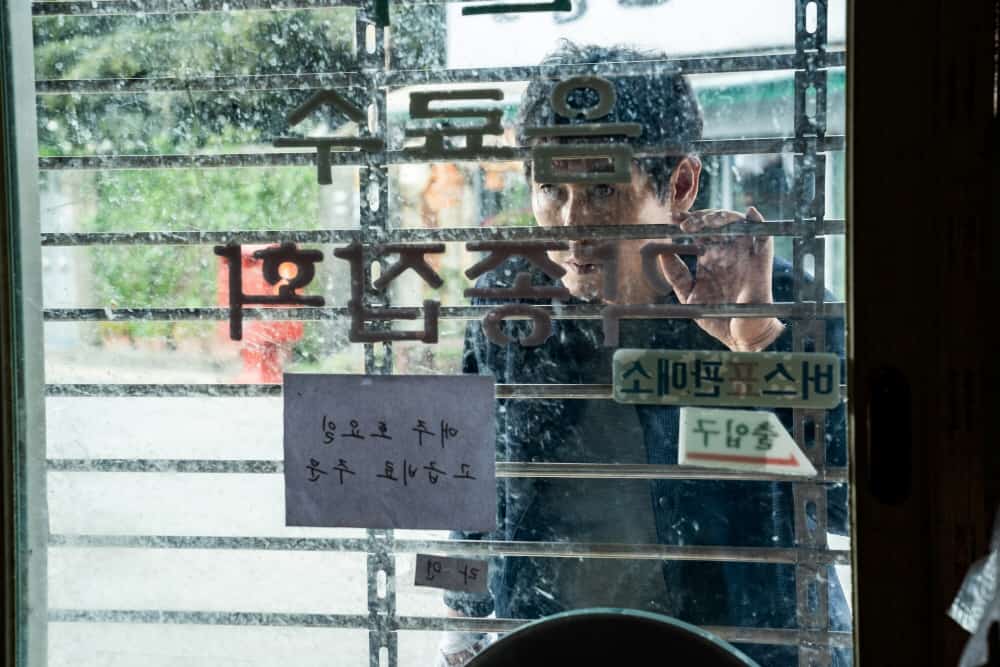
In comparison, “The Boys” by Chung Jiyoung, which also deals with corruption in the ranks of the police and the prosecution, develops a completely different pull. Despite the basically high tension of the thriller, this film could have been a little shorter and it is again the flashbacks that could have been dispensed with for a tightening. But they are also thoughtful on the part of the writers, as they serve as one of the many means of underpinning the audience's sympathy for the protagonists. In fact, it is a film as exciting as it is didactic. It is an indictment against the powerful who abuse their power and a plea for cohesion among those who have experienced injustice.
The case tried in “The Boys” is a real one that happened in Korea, in a smaller town, between 1999 and 2016, when three boys were arrested for entering a family's home at night, gagging the occupants while searching for money and jewelry, and killing the grandmother in the process. Just a year after,the police deemed the case closed and investigators made a career out of it, new investigative leads emerge for a new team of investigators to pursue. Their findings are clear, but the police apparatus is behind the original cops, which is why efforts to free the wrongfully convicted boys fail. It is not until 16 years later that a new chance to do so presents itself. Again, it threatens to fail.
“The Boys” is fast-cut and lavishly produced. It is clearly aimed at a wide audience, as evidenced by the use of extremely dramatic music and the emotional message that is to be conveyed by all means of art in the formal means. Among the actors are well-known names, especially the older investigator Hwang gets a credible charisma through Sol Kyung-gu. Since the characters are very sharply divided between bad guys and good guys, the actors in the “bad” roles visibly found it difficult to give their characters depth. This is especially evident with Yoo Jung-sang, who plays chief investigator Choi, and Heo Sung-tae, who plays prosecutor Oh. They seem a bit caricature-like at times.
“Blue Again” by Thapanee Loosuwan – Disappearing into the Blue
Ay travels by bus to Bangkok to train as a fashion designer. You can tell she is used to being alone. She is quiet and concentrated, she does not approach people. Even if, on the contrary, they are attracted to her – not necessarily in a positive way. This is because Ay looks different from the others. She has a Caucasian touch. Her mother is Thai from the Northeast, her father, presumably a white man. The latter actively plays no role in Ay's life, except for the fact, of course, that he helped shape her appearance, which causes her so much trouble in Thai society. The teasing among classmates is primitive, yet incisive; people take offense at her height or her non-black hair color, for example.
In itself, “Blue Again” offers a fascinating look at a group of teenagers all trying to find a place in life. Each of them has different difficulties in doing so, each reacts differently. The script meanders from one protagonist to another, taking its time, capturing fragments of emotions and feelings that are mostly only hinted at. The characters are unsure themselves of what exactly they are feeling. It is the challenge of growing up that they are trying to master. Ay's journey to womanhood is arduous, in between threatening to fade. Just like the yarn her mother dyes with indigo dye.
The film has many interesting approaches, gives an impressive insight into a society that is so rarely seen and furthermore describes the craft of dyeing very vividly. Nevertheless, “Blue Again” would have been more immediate by condensing the material, it is difficult to follow the mood over three hours. Thus, the film has a formal awkwardness concerning rhythm and also an arguably mannered camera work, but the actresses in the leading roles are all remarkable, especially Tawan Jariyapornrung as Ay and Asamapon Samakphan as her friend Pair.
“Dream Palace” by Ka Sung-moon – The dream apartment
The action takes place in a newly built high-rise apartment complex: “Dream Palace”. Unfortunately, the name will not prove to be a good omen for the residents. The quarrels among them go much further than normal friction between neighbors. Finally, all hostilities culminate in Hye-jung. She moves into the apartment complex with her adolescent son. But right at the beginning she makes an unpleasant discovery: Rusty water is coming out of the pipes. The building contractor and manager of the complex tells her that there will be no repair request until all the other units have been sold, because otherwise the costs would have to be passed on to the first existing owners, and they would certainly not agree to bear a higher share than they would if they were fully occupied.
So it's a matter of selling the remaining units soon if anything is to change for Hye-jung and she is not to handle tons of mineral water forever. But there's apparently a reason why the apartments aren't selling so well. In addition, the previous owners, literally fight tooth and nail against the fact that the remaining apartments can be purchased at a lower price than they paid. They also say that they should not advertise too aggressively, because that in turn would lower the current price of the complex. Since she alone seems to be affected by the water problem and cannot expect any outside help, Hye-jung overrides these fears and becomes active as an advertiser for the apartments.
This is a constellation seen quite often in Korean film. At the center is an existential fear that what one has worked hard for could be talked down to or even destroyed by others. Property that loses value is a horror. Also exemplary for a characteristic of this society is the group dynamic, which comes to bear on several levels in the film. The needs of the individual, however justified, are to be subordinated to those of the collective. Woe betide anyone who is reminded that there are problems somewhere. At some point, there must be peace again.
This was demonstrated very impressively in the case of the Sewol ferry disaster. For a long time, the bereaved families of the victims had the support, and not just the moral support, of the rest of society. At some point, however, when the state had still not provided the information that the victims demanded, the mood changed. The protesters were attacked, they should finally be satisfied with the offered reparations, close the chapter. In “Dream Palace”, a second plot line blends into the story, allowing for parallel observations. There has been a fire at a company. A group of relatives of the victims struggle to have the exact circumstances clarified.
In judging the main character and the dynamics that develop around her actions, one is at times a bit overwhelmed. The reactions of the others to her seem exaggerated, actually hardly comprehensible. One would clearly rather condemn the actions of others. Hye-jung is played outstandingly by actress Kim Sun-young, but some of her opponents even fall flat, as is the case with Lee Yoon-ji, for example.


